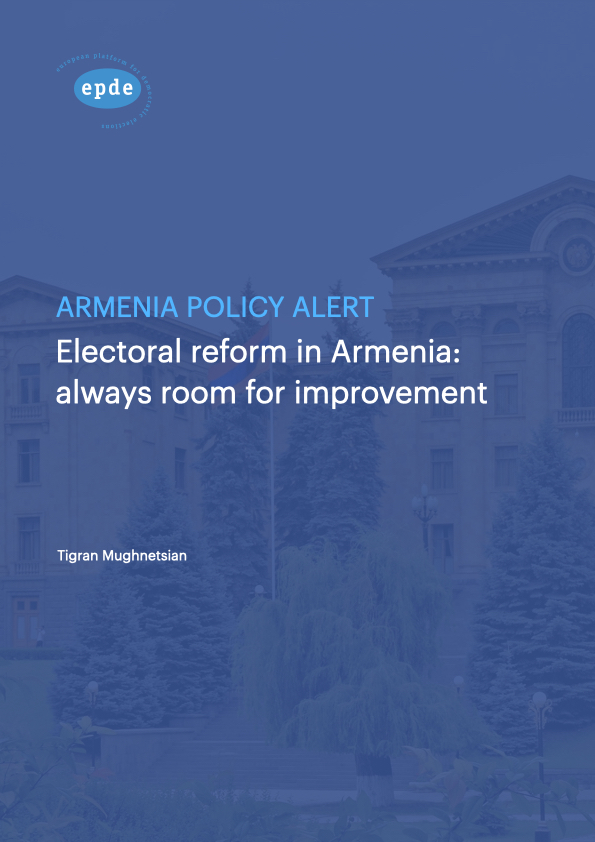
In this recently published Policy Alert, expert Tigran Mughnetsian sheds light on the draft bill on amendments to the electoral code and provides recommendations for improvements.
The Ministry of Justice, in collaboration with the Central Electoral Commission of Armenia, has proposed amendments to the electoral code and other legal acts to enhance existing regulations. These reforms address various aspects such as election conduct during a state of emergency, internal restructuring of the CEC, gender quota protection, and revisions to party and campaign funding, but the bill is still pending parliamentary approval before it can be implemented.
As envisaged in the draft bill, campaign funding would only be allowed for political parties and those who would like to contribute to a campaign must donate directly to political parties and must hold Armenian citizenship. This would prohibit non-Armenian voters who are eligible in participating in local elections from contributing to elections. Citizen observers proposed examining this issue. It is also recommended that only larger contributions should disclose donor data.
With the above points in mind, there are multiple recommendations that should be considered in the proposed amendments:
Subscribe to our
newsletter
Sign up for our monthly newsletter
and receive the latest EPDE news
Subscribe to our
newsletter
Sign up for our monthly newsletter and receive the latest EPDE news